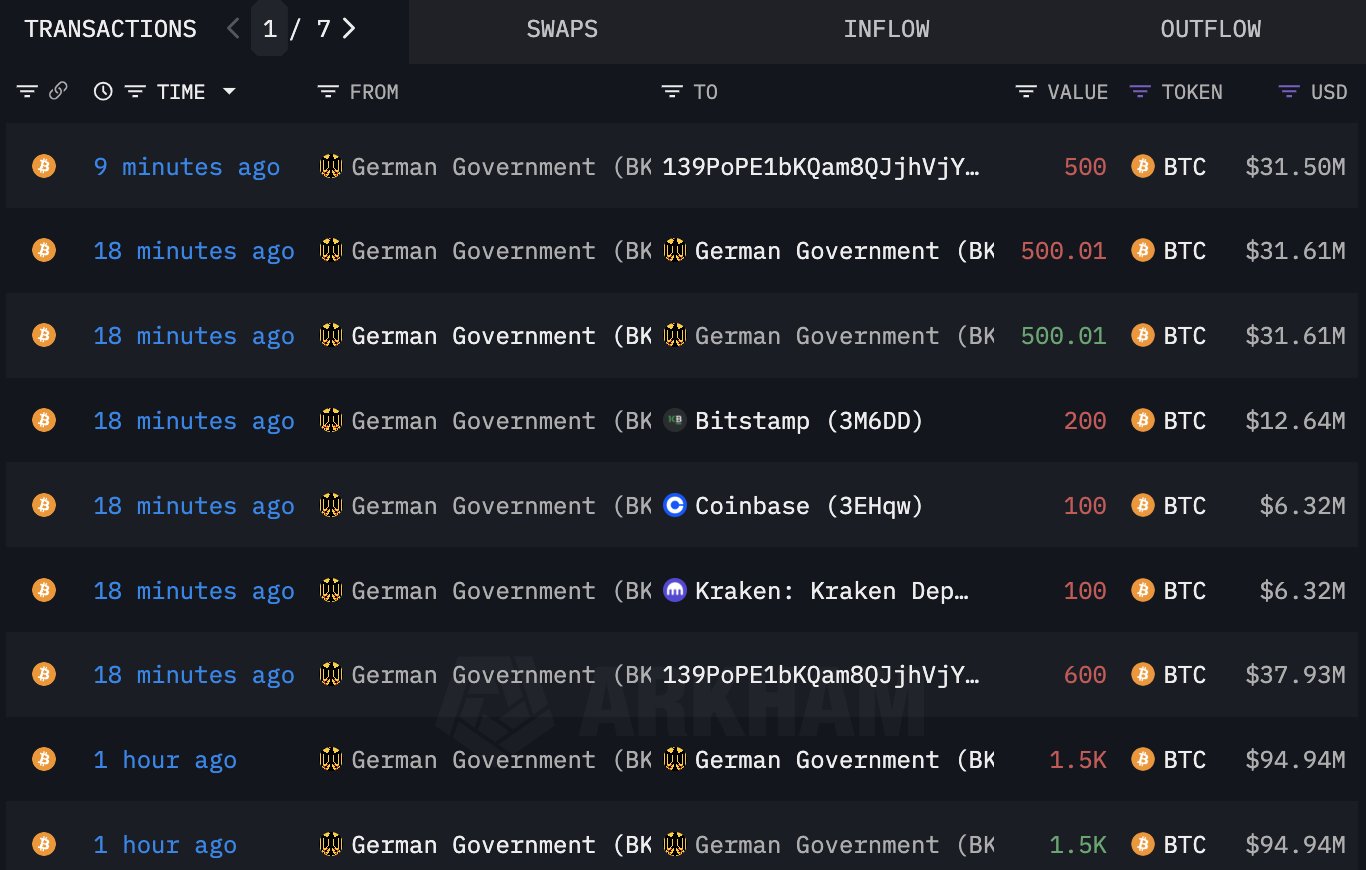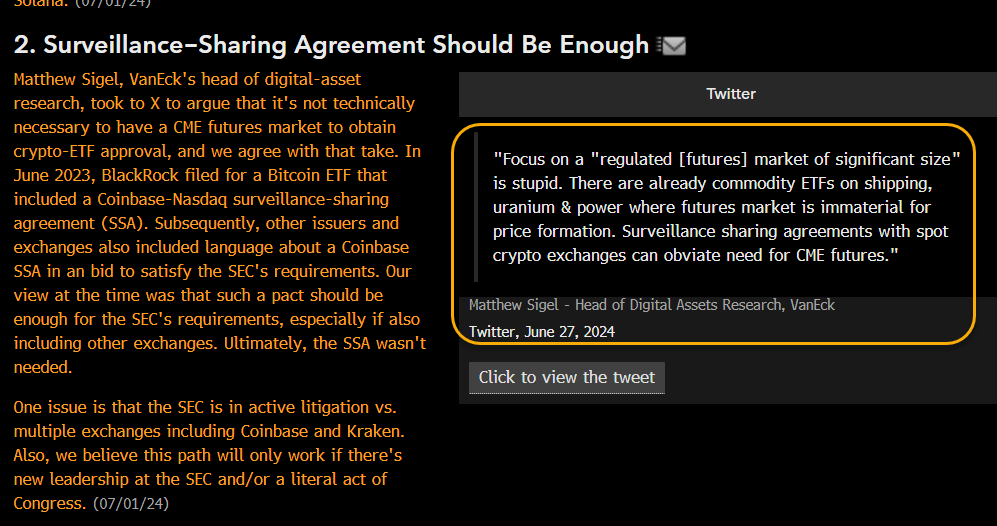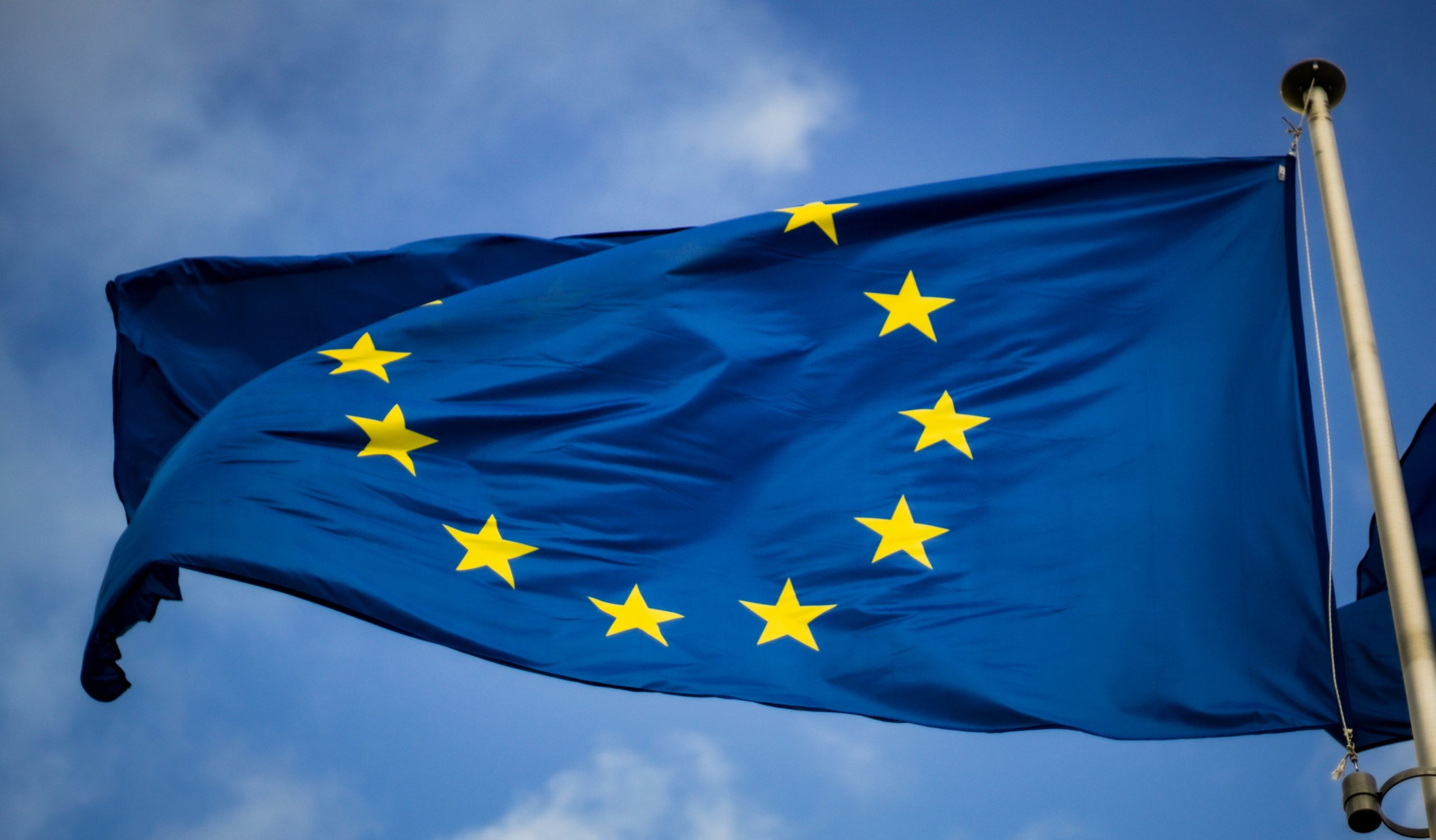NewsBriefs - Top minds join Sam Altman's Worldcoin to bolster privacy and security
07/02/2024 20:52
Worldcoin, the crypto project co-founded by OpenAI CEO Sam Altman, has strengthened its team by hiring former executives from Apple, Google,...
Editor-curated news, summarized by AI
Top minds join Sam Altman's Worldcoin to bolster privacy and security
Worldcoin, the crypto project co-founded by OpenAI CEO Sam Altman, has strengthened its team by hiring former executives from Apple, Google, Meta, Tesla, and X. These executives, including new Chief Device Officer Rich Heley and Chief Privacy Officer Damien Kieran, aim to enhance the project's security, privacy, and technology as part of their efforts to develop Worldcoin's biometrically-based digital identity system, World ID. This initiative seeks to distribute a global digital currency equitably and is currently preparing to transition to its Ethereum Layer 2 blockchain.
Latest
-
Aave starts GHO stablecoin deployment on Arbitrum
Aave has initiated the deployment of its GHO stablecoin on Arbitrum, leveraging the Aave v3 on this leading Layer 2 network to enable users to mint and burn GHO tokens. This integration aims to reduce transaction fees, speed up operations, and increase liquidity, thereby expanding GHO's utility in digital payments and other DeFi applications. The Arbitrum DAO supports this development by incentivizing GHO adoption with significant ARB token allocations. This move marks an important phase in GHO's broader cross-chain expansion strategy, which involves multiple networks and is backed by Chainlink's cross-chain interoperability protocol.
Expand
-
Top minds join Sam Altman's Worldcoin to bolster privacy and security
Worldcoin, the crypto project co-founded by OpenAI CEO Sam Altman, has strengthened its team by hiring former executives from Apple, Google, Meta, Tesla, and X. These executives, including new Chief Device Officer Rich Heley and Chief Privacy Officer Damien Kieran, aim to enhance the project's security, privacy, and technology as part of their efforts to develop Worldcoin's biometrically-based digital identity system, World ID. This initiative seeks to distribute a global digital currency equitably and is currently preparing to transition to its Ethereum Layer 2 blockchain.
Expand
-
Polkadot treasury to sustain current spending for two more years
Polkadot, an early competitor of Ethereum in the crypto space, has reported spending $87 million of its DOT tokens in the first half of this year, significantly up from its previous expenditure. With over $245 million in DOT tokens remaining, the treasury estimates a financial runway of two years at the current spending rate. Major expenditures included marketing, software development, and liquidity provision for developers and trading platforms on its network. Concerns arise within the community regarding the sustainability of such high spending levels.
Expand
-
German government transfers Bitcoin totaling $52 million
The German Government recently moved 832.7 Bitcoin, valued at $52 million, to major exchanges including Bitstamp, Coinbase, and Kraken. This follows a larger transfer of 1,500 Bitcoin valued at $94.7 million. The government still retains 43,859 Bitcoin, equivalent to approximately $2.74 billion.
Expand
-
South Korea's crypto exchanges to reassess 1,300 tokens under new standards
South Korea's twenty crypto exchanges, in collaboration with the Digital Asset Exchange Association (DAXA), will start reevaluating over 1,300 tokens currently traded domestically. These evaluations align with South Korea's new industry regulations that take effect from July 19, focusing on stringent compliance, security measures, and investor protection protocols. The revision will be part of a broader implementation of self-regulatory codes aiming to enhance transparency and fairness across all token listings.
Expand
-
Cardano releases MiCA-compliant sustainability indicators ahead of EU regulatory changes
The Cardano Foundation, in collaboration with the Crypto Carbon Ratings Institute, has released new sustainability indicators for the ADA network, ensuring compliance with the impending Markets in Crypto-Assets (MiCA) regulation in the European Union. The report highlights Cardano's adoption of energy-efficient consensus protocols significantly reducing its electricity usage and carbon footprint, setting industry benchmarks ahead of regulatory changes due in December. This proactive approach supports Cardano's goal of sustainable blockchain adoption while meeting European Securities and Markets Authority standards.
Expand
-
Keith Gill lawsuit dismissed abruptly after short stint on court docket
A class action lawsuit against Keith Gill, known as Roaring Kitty, alleging manipulation of GameStop stock prices through social media was voluntarily dismissed. The suit, initiated on Friday and dropped by Monday, accused Gill of benefitting from inflating GameStop's stock via his online influence. This rapid legal reversal occurs amidst Gill's continued high-profile activity in the stock market, signaling persistent volatility and scrutiny around such figures in the crypto and stock trading communities.
Expand
-
SEC charges Silvergate Bank and executives with misleading statements on AML compliance
The US Securities and Exchange Commission (SEC) has sued Silvergate Capital Corporation and its former top executives for allegedly misleading the public and shareholders about adhering to Bank Security Act/anti-money laundering (BSA/AML) regulations. Despite warnings of non-compliance from government examiners and failures in monitoring suspicious activities, including nearly $9 billion transactions linked to the bankrupt FTX, Silvergate claimed robust AML defenses. The bank experienced a precipitous downfall, leading to its voluntary liquidation amid a broader banking crisis.
Expand
-
Polymarket becomes the largest 2024 presidential election prediction platform
Bernstein Research identifies Polymarket as the largest blockchain-based prediction market for the 2024 US presidential election, highlighting its role in enhancing transparency and efficiency in political betting. The platform, running on the Ethereum-Polygon blockchain, has amassed over $200 million in bets, with current odds favoring former President Donald Trump at 63%. The analysis also underscores a significant decline in bets on President Joe Biden, reflecting recent shifts in public sentiment and market dynamics.
Expand
-
Circle becomes first stablecoin issuer to earn license under EU's new MiCA regulation
Circle has secured the first global stablecoin issuer license under the new EU Markets in Crypto-Assets (MiCA) rules, allowing it to issue both EURC and USDC in the EU. Circle Mint France, a subsidiary granted an Electronic Money Institution (EMI) license by French authorities, will facilitate the issuance. This move follows regulatory shifts that have led to the delisting of certain other euro-denominated stablecoins like Tether’s EURT.
Expand
-
VanEck confirms Solana ETF filing is influenced by US presidential election outcome
Matthew Sigel, VanEck's Head of Digital Asset Research, supported claims that their recently filed Solana ETF is strategically positioned in anticipation of a potential Donald Trump victory in the upcoming US presidential elections.
Expand
-
Ethereum's Vitalik Buterin proposes single-slot finality for faster transactions
Ethereum co-founder Vitalik Buterin suggests transitioning to a single-slot finality (SSF) system to significantly reduce Ethereum Layer-1 transaction confirmation times from seconds to milliseconds. This proposal comes after the Ethereum Merge to proof-of-stake, which already reduced confirmation times to a range of 5–20 seconds. SSF aims to enhance user experiences and accommodate applications requiring lower latency, despite the associated challenges and the potential for increased network congestion.
Expand
-
Tether partners with Uquid to enable USDT payments for social security in the Philippines
Tether, in collaboration with Uquid, has launched a service allowing Philippine citizens to use USDT for making Social Security System contributions on the TON blockchain. This initiative represents a significant advance in integrating crypto into routine financial transactions, particularly for government services. It underscores the expanding role of stablecoins like USDT in both everyday and institutional financial activities, while also highlighting ongoing efforts in the Philippines to foster a regulatory environment conducive to crypto and blockchain innovations.
Expand
-
Ethereum sees largest outflows, labeled worst performer in net flows for the year
Ethereum has been identified as the worst-performing asset in terms of net flows this year, experiencing its largest weekly outflow of $60 million since August 2022, according to CoinShares. In a broader context, while the crypto market saw inflows in some regions and assets, Ethereum-indexed Exchange-Traded Products (ETPs) suffered $119 million in total outflows over the past two weeks. Conversely, Bitcoin and multi-asset ETPs enjoyed inflows, suggesting a varied investor sentiment across different crypto assets.
Expand
-
MiCA stablecoin regulations come into effect, pose challenges for issuers
The MiCA (Markets in Crypto-Assets Regulation) stablecoin regime, a part of EU's effort to regulate the crypto market, became effective recently. It requires stablecoin issuaries in the European Economic Area to be licensed, potentially increasing operational challenges due to stringent capital, liquidity, and transparency requirements. Significant stablecoins will now be under the direct oversight of the European Banking Authority, and additional restrictions limit the issuance of stablecoins beyond certain transaction thresholds. While companies like Circle are adapting, Tether has opted not to pursue an e-money license, affecting its operational status in the EU.
Expand


:format(webp)/cloudfront-us-east-1.images.arcpublishing.com/coindesk/HRRQDYTB7VEG5GSELB6HTWRGYA.JPG)










